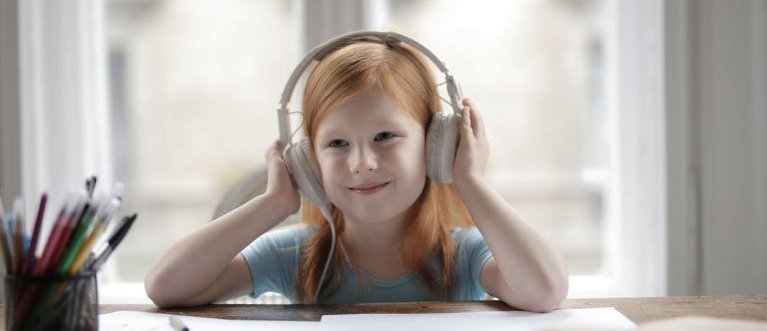Speaking and listening

Speaking and listening are building blocks of literacy. Also known collectively as oracy, they are key areas of research that are often neglected in the literacy space. In addition to the skills and attitudes of children and young people we have explored how technology and media impact on these disciplines.
We also know that talk in the home learning environment is crucial in developing children's school readiness.
Key statistics on speaking and listening
- In 2024, 2 in 5 (42.3%) children and young people said they enjoyed listening to audio either very much or quite a lot. This is slightly higher than 2023, when 39.4% said that they enjoyed listening.
- Research from the previous year (2023) showed that 1 in 2 (50.5%) children and young people said they enjoyed listening to stories.
- Also in 2023, more young men than young women said they felt confident speaking about politics (52.1% vs 36.7%) and climate (65% vs 50.4%).
- Nearly 2 in 3 (63.9%) young people felt in 2020 that they need good speaking and listening skills to achieve their aspirations, you can read more in our report about Aspirations, literacy and gender.
Creating confident communicators
Our Policy team have produced a new report exploring the topic of oracy and outlining how the government can help every child find their voice.

Our latest research into speaking and listening
-
This report outlines findings on children and young people's attitudes and behaviours around listening to audiobooks and podcasts.Learn more about Children and young people’s listening in 2024.
-
Our latest research into adults' engagement with audiobooks finds links to wellbeing and mental stimulation.Learn more about Audiobooks: A survey of UK adults in 2021.
-
This report explores the findings of a survey conducted with 2,021 parents of children from birth to age five about the home learning environmentLearn more about Parents' support for young children's literacy at home in 2024.
What else we know about speaking and listening
- A study which evaluates the role of audiobooks to engage reluctant readers and underrepresented children and young people shows that boys who do not enjoy reading are more likely to say they enjoy listening to audio (46.6%) than girls who do not enjoy reading (37.8%).
- More parents aged 34 and under said that they played, sung, looked at the alphabet, painted, and played outside at least once a day in the last week compared with parents aged 35 and over. Read the full report: Home learning environment - parent survey 2021.

Related work
-
Focusing on language acquisition in the first 1001 days, our annual conference is a cross-sector summit of thought leadership and best practice,Learn more about Early Words Matter conference.
-
Top tips to help teachers and parents make the most of audiobooks to support children’s literacy in the classroom and at home.Learn more about Audiobooks and literacy resources.
-
Resources to lead a whole-staff demonstration on how to use a high-quality text with engaging oracy techniques and activities to develop and deepen reading comprehension.Learn more about Talk for reading: a reading and oracy staff workshop.





